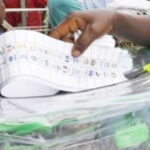Minister of State for Industry, Trade and Investment, Ambassador Maryam Yalwaji Katagum on Wednesday called on Banks to set up gender desks with a view to go the extra mile in identifying and prioritizing targets of potential women borrowers.
The Minister said the platform will ascertain and provide financial empowerment to the African Development Bank (ADB) to support women-led Farmers Based Associations (FBAS) and Micro, Small and Medium Enterprises (MSMEs) to promote agriculture in certain African countries.
While describing women as drivers of the African economy, she noted that they need to be encouraged to go into technically oriented Science, Technology, Engineering, and Mathematics (STEM) fields.
She said this in Abuja Wednesday while speaking at the 2nd Series African Women Trade Conference (AWTC) 2022 organized by Organization of Women in International Trade (OWIT) Nigeria in collaboration with other OWIT African Countries, themed ‘Positioning African Women for the Next big Opportunity in the Regional and Global Marketplace.’
Ambassador Maryam who was represented at the event by the Director of Commodity and Export Department at the ministry, Suleiman A. Audu, called for synergy and cooperation among all Africans regardless of background to be gender sensitive in the implementation of the African Continental Free Trade Area (AfCFTA), if it must attain its desired goal.
She said, “With the launch of trading under the African Continental Free Trade Area (AfCFTA) in January 2021, the expectations are high as relates to the expanded business prospects for women-led businesses, which will unlock the potential for African women to grow their businesses from micro to macro enterprises.
“The Agreement establishing the AfCFTA recognizes the need to build and improve the export capacity of both formal and informal service suppliers, with particular attention to micro, small and medium size enterprises in which women and youth actively participate.
“Through the AfCFTA, Informal and micro and small enterprises will be integrated into the continental markets breaking the barriers these businesses constantly encounter as they try to penetrate more advanced regional and overseas markets.
“Women, estimated to account for 70 per cent of informal cross-border trade in Africa, will be well positioned to tap into regional export destinations and use regional markets as stepping stones for expanding into overseas markets. By reducing tariffs and with simplified trading regimes for small traders, AfCFTA, makes it more affordable for informal traders to operate through formal channels. which offer more protection by addressing the vulnerabilities of women in cross-border trade.
“As part of efforts to position women to enable them benefit from the AfCFTA the following should be considered:
“Preparation for gender inclusion in national AfCFTA strategies and policies. Companies have to invest in women directly by integrating gender policies and practices with global diversity.
“Banks should set up gender desks with a view to go the extra mile in identifying and prioritizing targets of potential women borrowers as a platform for ascertaining and providing financial empowerment through African Development Bank (ADB) to support women-led Farmers Based Associations (FBAS) and MSMEs to promote agriculture in certain African countries.
“Greater efforts need to be made to provide women with access to technical education and on-the-job training. Targeted entrepreneurship training can help women entrepreneurs grasp the opportunities that open markets create and calibrate their businesses toward those opportunities through creativity and innovation
“Providing new technology platforms, empowering new small and medium-sized enterprises, creating jobs, diversifying economies, improving productivity, and facilitating entry into new markets. Women need the skills and access to Information and Communication Technologies (ICTs), business networks and technical knowledge to be able to tap into these emerging opportunities
“More women need to be encouraged to go into technically oriented science, technology, engineering, and mathematics (STEM) fields to be able to pioneer scientific innovations that are inclusive, and to shape business trends.
“Women are the drivers of the African economy and I therefore, will use this opportunity to call for synergy and cooperation among all Africans regardless of background to be gender sensitive in the implementation of the AfCFTA if it must attain its desired goal.
“No doubt, our collective success story will be that of transfer of skills, socio-economic development and sustainability of the overall processes, unity and above all, employment generation.
“Nevertheless, I will not fail to commend the Organizers of this conference for this lofty initiative, which I believe is bone out of patriotism of the Organization of Women In International Trade, for playing host to this great gathering, and all the Participants from different parts of Africa for their sacrifices amidst every “stom” to be here.
“Finally, I encourage all women in their respective clusters and associations to take advantage of various government incentives and platforms in their various countries geared towards support and empowerment for greater achievements and sustainability.”
However, one of the panelists at the event, Flora Agbiji Ndifon said cross border Communities are being abandoned.
She explained that the border communities lack infrastructures.
“The only thing that you will see in any border communities are Custom Officers and other related agencies,” she said.
Flora, who specializes in cross-border Trade, urged the government to pay attention to the development of border Communities.




